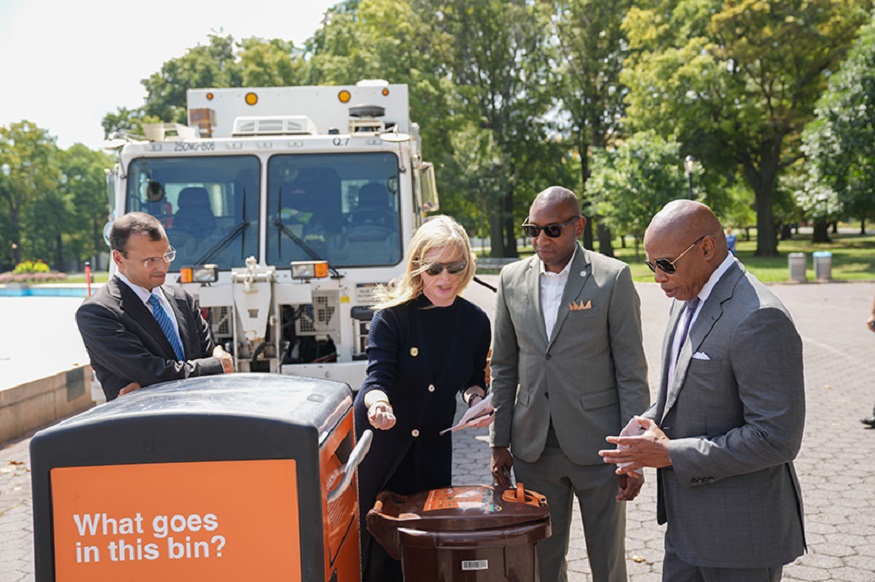
Mayor Eric Adams announces the launch of a curbside composting program that is coming to the entire borough of Queens this fall (Photo courtesy of mayor’s office)
Aug. 8, 2022 By Christian Murray
The city will be providing residents throughout Queens with a composting service starting in the fall.
The mayor and the Department of Sanitation announced Monday that beginning Oct. 3 all residential buildings in Queens will be part of a curbside composting program.
The city will be collecting leaf and yard waste, food scraps, and food-soiled paper products on a weekly basis throughout the borough. This will be the first time an entire borough will receive the service.
The borough was selected in part because Queens produces a significant amount of leaf and yard waste, with the borough home to 41 percent of New York City’s street trees.
“Starting this fall, we’re bringing guaranteed, weekly curbside composting to the entire borough of Queens — taking action to keep our streets clean and simultaneously fight climate change,” Mayor Adams said. “This launch makes New York City home to the largest curbside composting program in the country.”
Unlike past composting programs, there is no sign-up required for this new service. Residents of Queens need to simply set out their waste on the assigned day and let DSNY pick it up.
The collection schedule will be available on DSNY’s composting website by mid-September.
To participate in the program, residents must place food waste in a labeled bin with a secure lid or a bag to prevent pests and odors. Residents may use an old DSNY-issued brown bin or a lidded, labeled bin of their own.
DSNY will deliver bins to all Queens residential addresses with 10 or more units in the coming weeks. Homeowners can request a bin online at nyc.gov/curbsidecomposting.
Weekly service will begin October 3 and run through late December. After a three-month pause for winter — when there is little to no yard waste to be collected — service will resume in late March 2023.
The city says the program is needed to prevent climate change and waste.
When waste decomposes at a landfill, it creates methane, a potent and dangerous greenhouse gas, the city says. Separating compostable material from household trash is one easy way to ensure a cleaner, greener city.
About one third of the city’s residential waste is compostable material, which can help gardens grow or create power through renewable energy.
One Comment

Every minute of every day, somebody in this city is getting killed or assaulted and this is what he spends his time on? What happened – he got tired of telling school kids what they should eat? He’s worse than Dinkins and DeButthead put together.